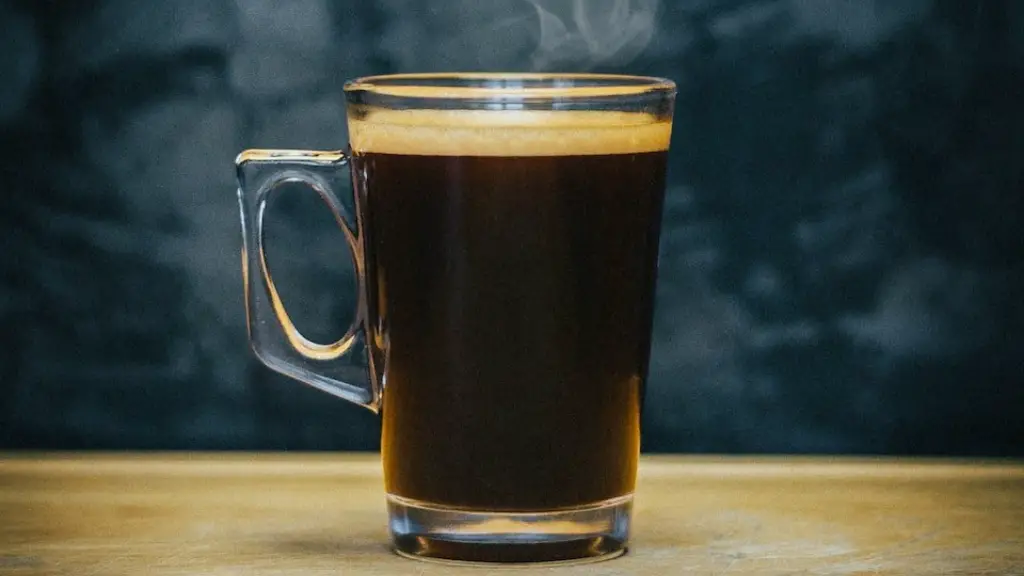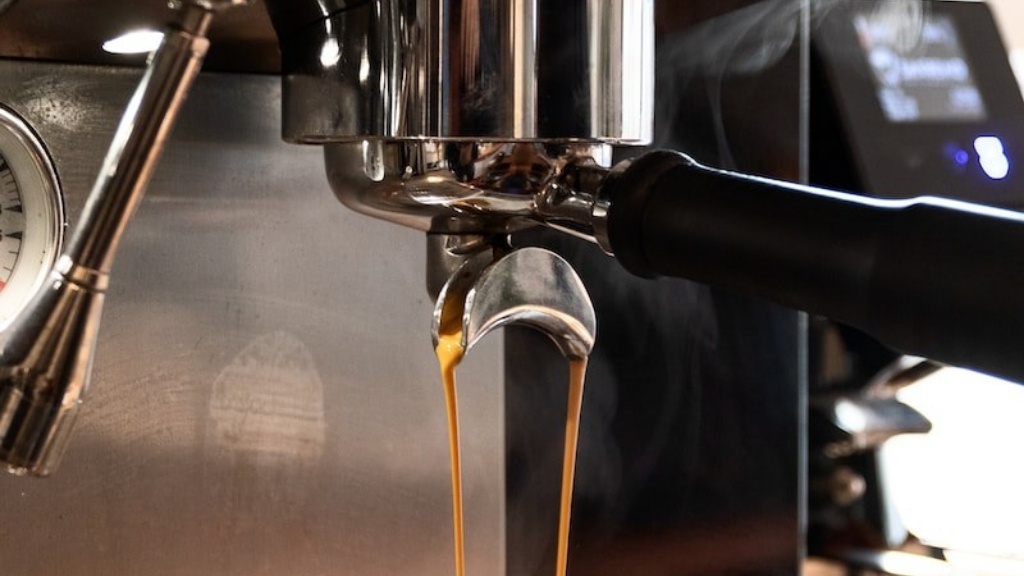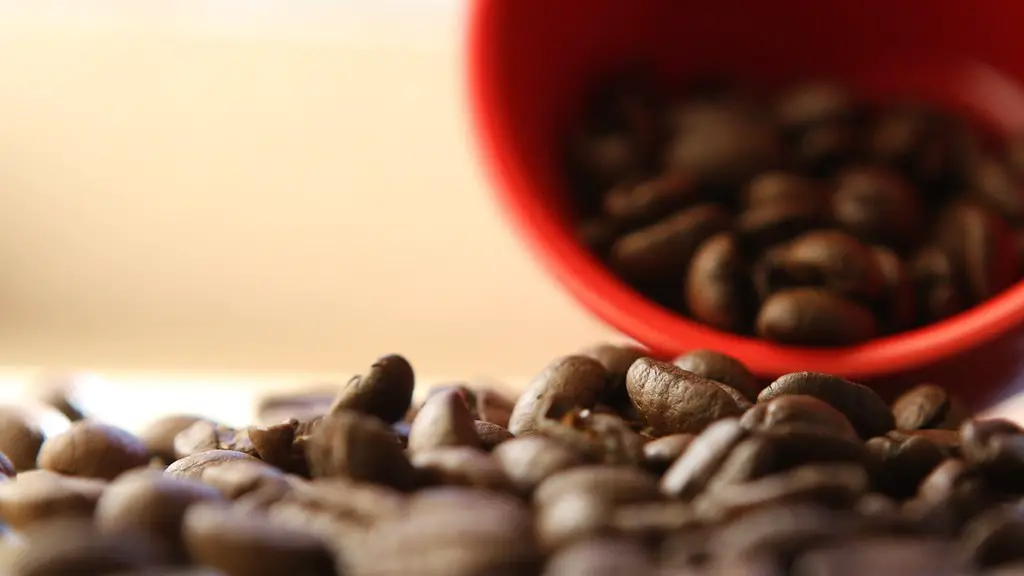Café energy drinks have become commonplace in our modern world, with many people drinking them in the morning or between meals as a quick source of energy. But are they healthy and beneficial to drink? Unfortunately, the answer is not so straightforward. To gain an accurate picture, let’s explore the debate between experts to determine the pros and cons of coffee energy drinks.
One aspect often brought up in the discussion is the fact that they contain high amounts of caffeine. Depending on the brand, an energy drink can contain anywhere from 50 milligrams (mg) to over 300 mg of caffeine per can. Even the American Academy of Pediatrics (AAP) recommends avoiding drinks with more than 100 milligrams of caffeine due to the potential for resulting caffeine intoxication.
Despite the potential for adverse health effects, some experts argue that the amount of caffeine in coffee energy drinks is still within the range of risks associated with caffeine consumption by adults. It is also argued that coffee energy drinks can provide a boost of energy when needed, as well as an extra natural focus without the need for stimulants.
On the flip side, an opposing expert argues that since they contain high levels of caffeine, they can lead to disruption of sleep patterns, increased heart rate, and various unpleasant side effects. It is recommended that those suffering from high blood pressure, heart conditions, or depression should avoid consuming coffee energy drinks entirely.
When consumed in moderation, coffee energy drinks can still have positive effects. As a general rule of thumb, an adult should not consume more than three to four of these drinks in a single day. It is also important to pair them with healthy food choices and to avoid drinking them too close to bedtime as they could interfere with sleep.
The health benefits of coffee energy drinks can be a contentious point. On one hand, when consumed in moderation, they can be a convenient way to get a boost of energy without relying on stimulants. However, it is worth mentioning that consuming high amounts of caffeine can carry greater health risks, including nausea, dehydration and restlessness.
Effects on Athletic Performance
While drinking coffee energy drinks can give you a temporary boost of energy, consuming high levels of caffeine can actually have a negative effect on athletic performance. Some studies have shown that consuming over 400 mg of caffeine can reduce performance and lead to increased fatigue and other health complications.
These drinks are often advertised as a way to improve performance in sports and exercise, but consuming large amounts can actually have an adverse effect. Therefore, it is important to pay close attention to the actual caffeine content of a product and to moderate your intake accordingly.
Additionally, some athletes may find that consuming caffeine-free energy drinks is effective in providing energy. While such energy drinks will still contain high levels of sugar and other additives, they can still provide a boost of energy without the negative side effects associated with high levels of caffeine.
Additives
In addition to their high caffeine content, coffee energy drinks are often packed with additives and sugars. While the added sweeteners can provide an extra boost of energy, they can also lead to an increased risk of weight gain over time.
The effects of added sugar can also result in a crash in energy levels and feelings of letdown very soon after the drink is consumed. It is recommended to moderate your sugar intake and to avoid drinking too much sugar-containing coffee energy drinks.
It is also worth mentioning that some of these drinks contain additional stimulants such as guarana or taurine, both of which can lead to increased risk of anxiety and other concerning side effects. Therefore, it is important to pay close attention to the ingredients and additives found in coffee energy drinks and to avoid consuming too much of them.
Are They Ultimately Bad for You?
Determining whether coffee energy drinks are ultimately bad for you is an individual decision. If consumed in moderation, the health benefits of such drinks are likely to outweigh the risks. However, it is important to stay aware of the potentially harmful effects that large amounts of caffeine and added sugars can have on your body.
In general, you should avoid excessive consumption of coffee energy drinks, aiming to moderate your intake instead. It is also a good idea to pair them with healthy food choices, and to avoid drinking them too close to bedtime.
Dependence and Withdrawal
An occasional energy drink can be fine, but consuming multiple per day can lead to caffeine addiction and an increase in tolerance. As tolerance increases, it can also lead to more severe withdrawal symptoms, such as headache and fatigue. If you find yourself experiencing any such symptoms, it is important to take steps to reduce your caffeine intake and to focus on restoring your body’s balance.
It is also important to be aware that some of the herbs and components found in coffee energy drinks can carry health risks, such as an increased risk of anxiety and depression. Like caffeine, these components can also lead to dependency and withdrawal symptoms.
Alternatives to Coffee Energy Drinks
If you’re looking for an alternative to coffee energy drinks, there are several options available. For instance, natural energy-boosting snacks like nuts, oatmeal, and fruits can provide a boost of energy without the unhealthy side effects. Additionally, there are also supplements available that are specifically formulated to help boost energy levels.
Moreover, consuming a glass of water with added electrolytes can help to replenish lost fluids and minerals while boosting energy levels. Additionally, there are various herbal teas available that can be consumed in the morning or during the day as natural sources of energy.
Conclusion
In conclusion, coffee energy drinks can provide a quick and convenient boost of energy. However, it is important to note that large amounts can carry potential health risks, as well as lead to caffeine addiction. Therefore, it is best to consume in moderation, opt for caffeine-free alternatives, and pair them with healthy food choices.




